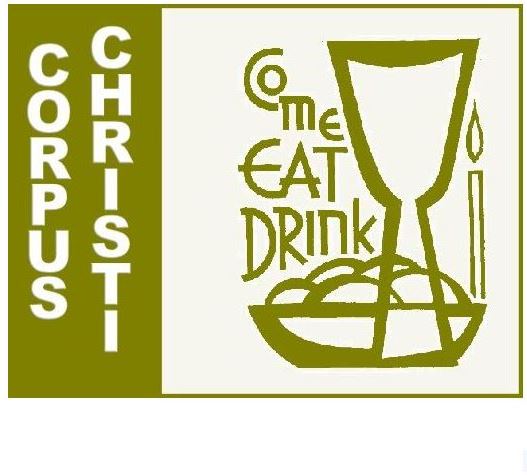25 July 2021
2 Kings 4: 42-44 Ephesians 4:1-6 Mark 6:1-15
Christ, the Bread of Life broken for the life of the world
There is famous mosaic on the floor of the ‘Church of the Multiplication’ at Tagbha in Israel that commemorates the event recounted in today’s gospel. The mosaic depicts two fish with a basket of loaves between them. We notice that there are only four loaves in the basket and wonder where is the fifth? Is it Jesus himself, the bread come down from heaven to be the life of the world? Or is it the Eucharistic community, fed by Christ and called, in turn, to be food and sustenance for a hungry world? All our readings today resonate with Eucharistic themes and give us a deeper appreciation of this great sacrament, the pulsating heart of the Church’s life.
Our first reading, taken from the second book of Kings, tells us the story of how Elisha, during a time of destitution and famine, feeds 100 men with twenty-five barley loaves and some ears of corn. Today’s gospel passage, taken from the sixth chapter of John’s Gospel echoes while surpassing the miracle of Elisha’s. It recounts the familiar story of the multiplication of the loaves and fish, common to all four gospels. John, the only evangelist who has no account of the institution of the Eucharist, models his story of how Jesus feeds the five thousand on what happens in every Eucharist. Jesus takes the bread offered by a young boy, gives thanks for what has been offered, and shares the food with all present. In the second reading, taken from his letter to the Ephesians, Paul, writing from prison, reminds the community at Ephesus that they have received one Spirit and form one body. Hence, he exhorts them: ‘Do all you can to preserve the unity of the Spirit in the peace that binds you together’ (Ephesians 4:5). This unity in the Spirit is the fruit of the Eucharist, our partaking of the Body of the Lord.
‘Eucharist’ comes from a Greek word and means ‘thankgsiving’. In the Eucharist, we give thanks for Christ present as the food that nourishes and strengthens us. The Eucharist renews the deepest springs of our humanity, unites us to one another, and enables us to become sources of nourishment for others. The Eucharist is Christ’s communion with us. It is, at the same time, our communion with one another. Christ loves us so much that he wants to be with us and wants us to be with him. Love tends towards union. When we love someone we want to be with them always. We never want to be separated with them.
Christ desires to be with us in the most complete way possible. This is what happens in the Eucharist. He comes to us. He enters into us. He takes possession of our hearts and minds and bodies. He becomes one with us. And he wants to make us one with him. The moment of communion in Mass, when we eat the body of Christ and drink his blood, is the greatest moment of intimacy that can exist between God and us. However, we cannot be in communion with the Lord without being in communion with one another. This recognition of the oneness of all who partake of the Body and Blood of Christ is expressed in several ways in the Mass: in the common acknowledgement that we are sinners, the common responses, the songs of praise, the Gloria, the Creed, the acclamation of faith, and the Great Amen (At the end of the Eucharistic Prayer, just before the Our Father). We act as one body because we are made one body in Christ. St. Augustine used to say to his Congregation as he held up the Body of Christ: “See what you are and become what you see.”
Every Eucharist ends with a sending out on mission: “Go in Peace to love and serve the Lord”. We have to bring the Eucharistic Christ to the world. Just as Christ has become our Food, giving himself completely to us, so too we must give ourselves for the sake of the world. We are challenged in this mission to live the love we have experienced. We have to become sources of nourishment for the world as Christ has become a source of nourishment for us. There is a contemporary hymn, based on a prayer attributed to St Theresa of Avila, which expresses this challenge quite beautifully:
‘Christ has no body now but yours,
no hands but yours,
no feet but yours.
Yours are the eyes through which
Christ’s compassion must look out on the world.
Yours are the feet with which
He is to go about doing good.
Yours are the hands with which
He is to bless us now.’
We become the body of Christ when we receive Christ, the Bread of life, in Communion, and our mission is to be, in turn, the body of Christ for others.
Michael McCabe SMA, Cork, July 2021

